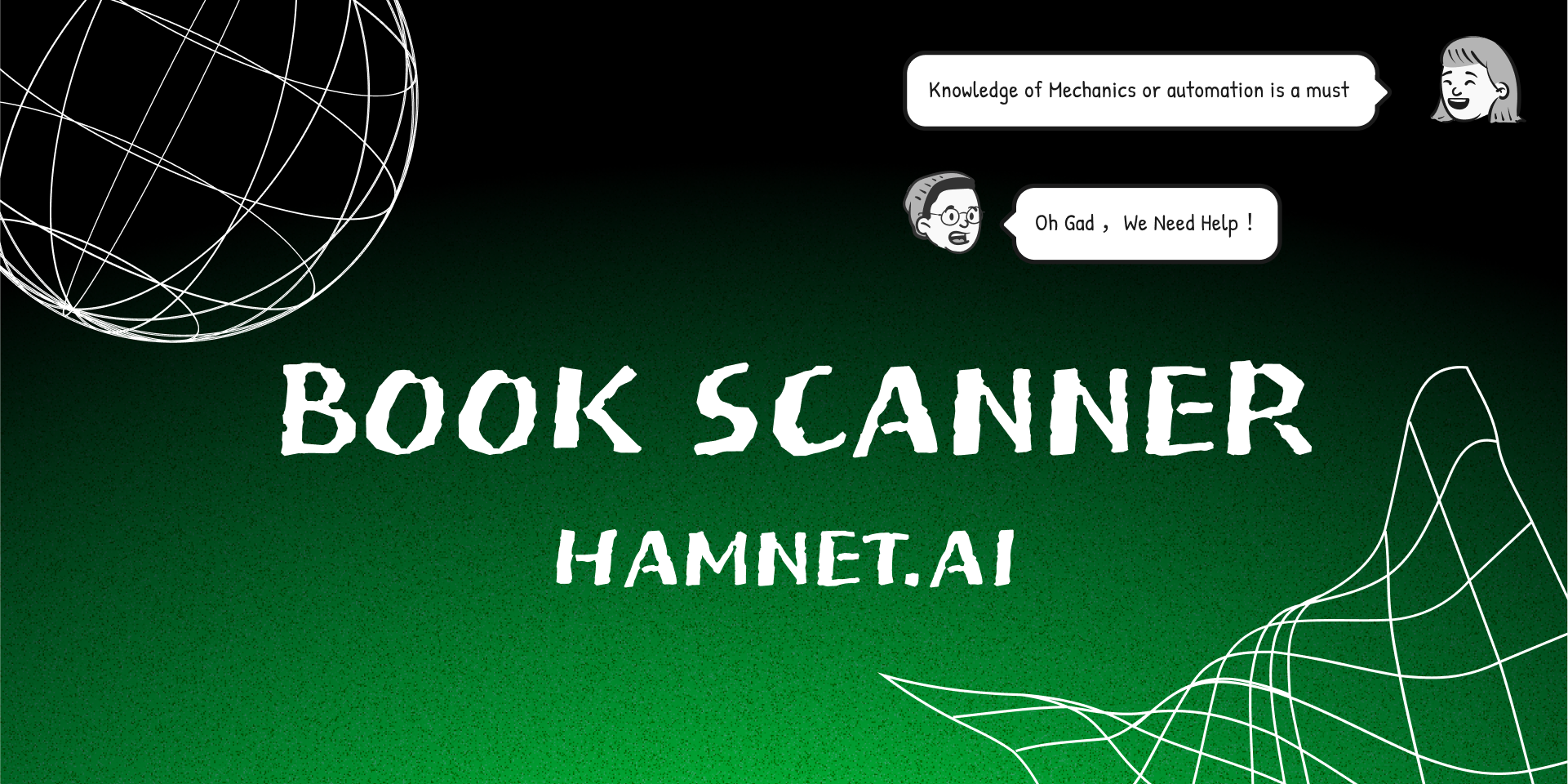
Smart Hardware / 2023
Book Scanner An affordable solution for automated page-turning book scanning.
Available Options Is Not Good
If this isn't your beloved book, the quickest scanning method would undoubtedly involve slicing off the book's spine, placing it into a high-speed duplex scanner for a swift double-sided scan.
However, it's evident that this destructive act of spine removal doesn't make electronic conversion of books a standard choice for every bookworm.
If you don't want to scan the entire book but only a few pages, you can opt for a high-speed page scanner. Nonetheless, this method requires manual page flipping, making it less suitable for extensive book scanning tasks.
It doesn't seem like a sustainable plan in the long run.
What Features Should Book Enthusiasts Look for in a Book Scanner?
Preserving the condition of the books is a must.
Costs must be manageable, making it a promising paid product for avid book lovers.
The scanning process should be capable of automatic page-turning, covering the entire book from start to finish.
Driven by algorithms, minimizing manual corrections, optical recognition software, algorithms for wrinkle removal, color correction.
Ultimately, it should be able to archive a complete electronic version.
Google Linear Book Scanner
Google's clandestine project to scan all the books in the world began in 2002, known as "Project Ocean." Despite facing legal challenges due to copyright issues, this project ultimately came to an end. Nevertheless, Google accumulated valuable expertise in digitalizing books. The Google Linear Book Scanner is a result of this effort.
It's important to note that our goals are not entirely aligned with Google's. We aspire to provide the option of digitization for the physical book which reader has right to access, enhancing the reading experience for themselves. Obviously , we have no interest in the colossal task of digitizing every book in the world.
A book moves back and forth over the machine.

Each time across, a vacuum sucks a page from one side to the other.

The pages are scanned as they travel across two imaging sensors.

References Paper And Repo
Development Resources for the Linear Book Scanner
Official Web Prototype Design Paper Of Michigan Github RepoCode archive
Awesome Reproduction Works
We Need Help !

Digitizing books holds immense importance for 'hamnet.ai'.
However, our team primarily comprises members with a strong background in
algorithms and software engineering. If you possess a passion and
expertise in mechanics or automation, please don't
hesitate to get in
touch with us.
We're joining forces, both financially and experientially, to bring this
outstanding product back to life. Let's collaborate on this project!